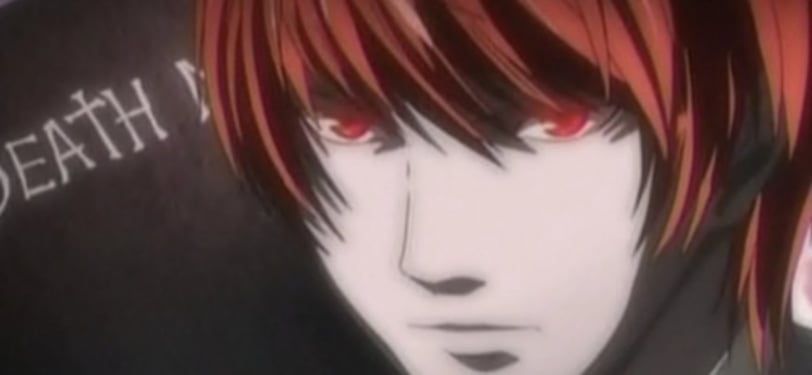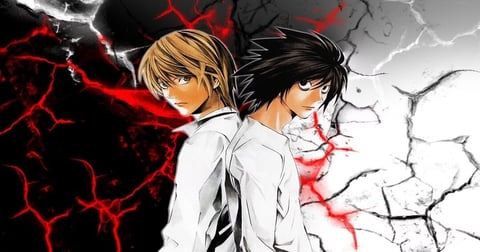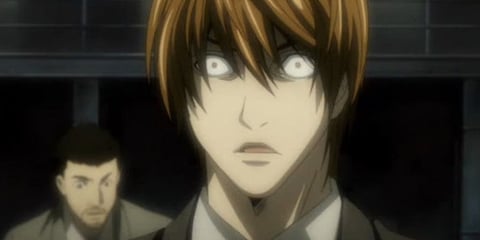Death Note: Character Analysis - Light Yagami's Transformation
Explore the complex character arc of Light Yagami in "Death Note," from a brilliant high school student to the feared vigilante Kira. Delve into his psychological transformation, moral decline, and the battle of wits with his nemesis, L, in this in-depth character analysis. Click to learn more!
DEATH NOTE
Anime Fever
8/5/20245 min read


Light Yagami, the protagonist of the critically acclaimed manga and anime series "Death Note," undergoes one of the most compelling and complex character arcs in modern storytelling. From an academically gifted high school student to the feared and self-proclaimed god, Kira, Light's transformation is a tale of ambition, morality, and the corrupting influence of absolute power. This article explores Light Yagami's journey, examining the psychological and moral shifts that define his character arc.
Introduction to Light Yagami
Light Yagami starts as an exemplary student, excelling in his academics and possessing a strong sense of justice. The son of a police officer, he is intelligent, disciplined, and harbors a deep desire to make the world a better place. Light's initial portrayal is that of a model teenager, one who is bored with the mundanity of everyday life and disillusioned by the rampant crime and corruption in society.
The Discovery of the Death Note


The turning point in Light's life comes when he discovers the Death Note, a supernatural notebook that grants its user the power to kill anyone whose name and face they know. This discovery sets the stage for Light's transformation, as the power of the Death Note acts as a catalyst for his latent god complex and his desire to cleanse the world of evil.
Light's initial reaction to the Death Note is one of disbelief and curiosity. He tests its power by killing two criminals, and when he confirms its authenticity, a profound shift begins. The Death Note offers Light an unprecedented opportunity to enact his vision of justice, and he decides to use it to rid the world of criminals, adopting the moniker "Kira" (derived from the Japanese pronunciation of the word "killer").
The Emergence of Kira


As Kira, Light embarks on a crusade against crime, using the Death Note to execute criminals on a global scale. His actions quickly attract the attention of law enforcement agencies and the world's media, creating both fear and admiration among the public. Light's transformation from an ordinary student to Kira is marked by several key developments:
1. Moral Decline:
Light's sense of justice becomes increasingly warped as he uses the Death Note. Initially, he targets only those he deems unworthy of life—murderers, rapists, and other serious offenders. However, as he grows more confident in his role as Kira, his criteria for judgment become broader and more arbitrary. Light begins to view anyone who opposes him or threatens his identity as Kira as an enemy deserving of death. This includes law enforcement officers, innocent bystanders, and even his own family members if they stand in his way.
2. God Complex:
The power of the Death Note exacerbates Light's already high opinion of himself. He starts to see himself as a god-like figure, capable of creating a utopia through his actions. This god complex is evident in his interactions with others; he becomes increasingly manipulative, ruthless, and arrogant. Light's belief in his moral superiority blinds him to the ethical ramifications of his actions, and he justifies his killings as necessary for the greater good.
3. Isolation:
As Kira, Light becomes increasingly isolated from those around him. To protect his secret, he must distance himself from friends, family, and anyone who might discover his true identity. This isolation takes a toll on his relationships, particularly with his father, Soichiro Yagami, who is leading the task force dedicated to capturing Kira. Light's dual identity forces him to live a double life, maintaining the façade of a diligent student and son while secretly orchestrating a global killing spree.
The Psychological Battle with L


One of the most significant aspects of Light's transformation is his psychological battle with L, the enigmatic detective tasked with capturing Kira. L serves as Light's intellectual equal and moral foil, challenging his beliefs and methods at every turn. Their cat-and-mouse game is a central element of the series, showcasing Light's cunning and strategic mind.
1. Strategic Genius:
Light's battle with L highlights his strategic brilliance. He employs meticulous planning, deception, and psychological manipulation to stay one step ahead of L and the task force. Light's ability to anticipate L's moves and counter them with precision is a testament to his intelligence and adaptability. However, this constant game of wits also reveals Light's increasing paranoia and willingness to sacrifice anyone to maintain his power.
2. Moral Ambiguity:
L's pursuit of Kira forces Light to confront the moral ambiguity of his actions. L's unwavering commitment to justice contrasts sharply with Light's self-serving interpretation of it. While Light views himself as a savior, L sees him as a murderer. This dichotomy raises important questions about the nature of justice, the ethical use of power, and the consequences of playing god. Light's refusal to acknowledge the moral complexity of his actions ultimately leads to his downfall.
The Transformation's Climax and Downfall


Light's transformation reaches its climax with his eventual downfall. Despite his best efforts, he cannot maintain his façade indefinitely. His increasingly reckless behavior, combined with the relentless pursuit of L's successors, Near and Mello, leads to his exposure and defeat.
1. The Cost of Hubris:
Light's downfall is a direct result of his hubris. His belief in his invincibility blinds him to the possibility of failure. He becomes overconfident and underestimates his opponents, leading to critical mistakes. Light's inability to adapt to changing circumstances and his overreliance on the Death Note's power ultimately seal his fate.
2. Loss of Humanity:
By the end of the series, Light's transformation is complete. He has become a shadow of his former self, consumed by his god complex and the pursuit of power. His initial noble intentions are overshadowed by his descent into tyranny and madness. Light's willingness to sacrifice anyone and everyone, including those he once cared about, highlights the extent of his moral decay.
3. Legacy and Impact:
Despite his defeat, Light's impact as Kira is undeniable. He leaves a lasting legacy, influencing the beliefs and actions of countless individuals. His existence sparks debates about justice, morality, and the use of power. Light's transformation serves as a cautionary tale about the dangers of unchecked ambition and the corrupting influence of absolute power.
Conclusion
Light Yagami's transformation from a high school student to Kira is a masterclass in character development. His journey explores the complexities of human nature, the corrupting influence of power, and the thin line between justice and tyranny. Light's descent into darkness serves as a poignant reminder of the consequences of losing one's moral compass and the dangers of believing oneself to be infallible.
"Death Note" remains a seminal work in the realm of psychological thrillers, largely due to Light Yagami's compelling character arc. His transformation is not just a personal journey but a profound exploration of the human condition, challenging viewers and readers to question their own beliefs about justice, morality, and the nature of power. Light Yagami's story is a testament to the enduring power of complex, morally ambiguous characters in storytelling.
